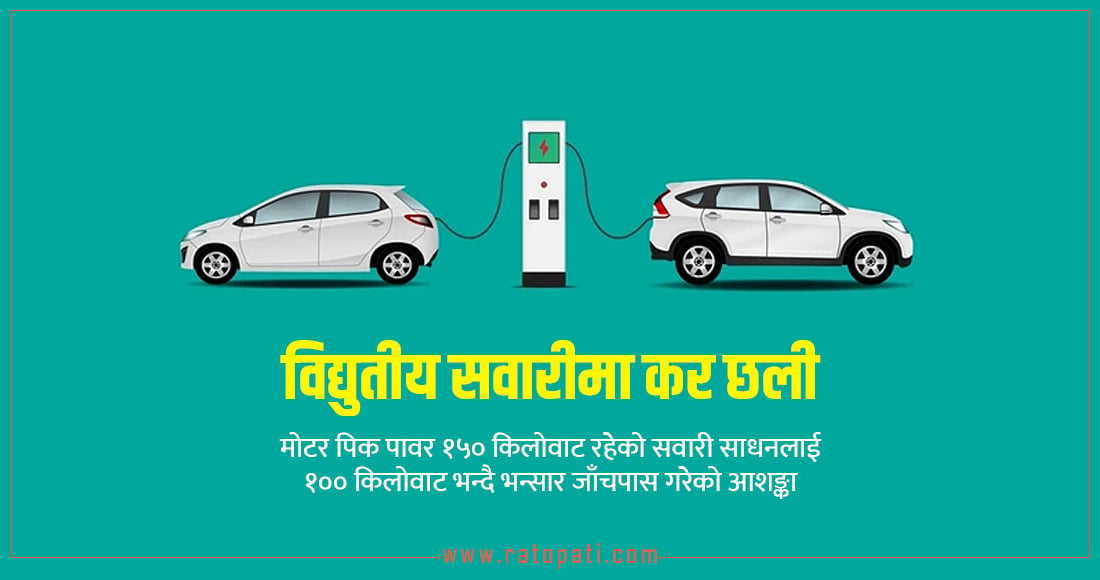The government concluded that electric vehicle importers evaded taxes.
The revenue Investigation Department opens file

We use Google Cloud Translation Services. Google requires we provide the following disclaimer relating to use of this service:
This service may contain translations powered by Google. Google disclaims all warranties related to the translations, expressed or implied, including any warranties of accuracy, reliability, and any implied warranties of merchantability, fitness for a particular purpose, and noninfringement.
Kathmandu: The government, already stressed by the increasing import of electric vehicles, has been further alarmed by suspicions of tax evasion. The government has been offering extensive concessions through the budget to make electric vehicles accessible to the general public. The government has concluded that it has lost more than 100 billion rupees in revenue due to tax concessions on electric vehicles, and is now alarmed by suspicions of tax evasion.
Following the government's policy of tax concessions, the sale of electric vehicles has significantly increased. It is reported that 65 to 70 percent of the total vehicles sold recently are electric vehicles. Reports also suggest that Nepal is leading globally in the acceptance of electric vehicles. In this scenario, the government suspects that companies selling electric vehicles have been reducing the motor capacity of the vehicles to evade taxes.
Government agencies, including the Ministry of Finance and the Revenue Investigation Department, suspect that vehicles with a motor peak power of 150 kW in the manufacturing country are being declared as 100 kW at customs. In line with this suspicion, the Director General of the Customs Department, Dhundi Prasad Niraula, signed a letter on May 15 to the Rasuwa Customs Office, the Tatopani Customs Office, and the Customs Clearance Office.
The letter from the Customs Department expressed doubts about the motor capacity/peak power of the electric vehicles that have cleared customs in Nepal. The department instructed that during the inspection of electric vehicles under customs headings 8702, 8703, and 8704, the motor's peak power and capacity should be thoroughly checked as per the manufacturer’s website.
Punya Vikram Khadka, the department's director and information officer, told Ratopati that letters were sent to the relevant agencies to investigate the suspicions raised by the department. "The department cannot investigate this issue itself. We have sent letters to the concerned agencies to investigate the matter raised in the market," Khadka said. "We have instructed them to ensure that customs clearance is done properly in the future."
After the Customs Department suspected that electric vehicle importers were reducing the motor's peak power and capacity, the Revenue Investigation Department also started an investigation. The department's director and spokesperson, Navaraj Adhikari, said that they are investigating whether the motor's peak power and capacity of electric vehicles were reduced.
The Revenue Investigation Department has requested the customs declarations submitted by electric vehicle importers from the Customs Department. The department stated that further investigation will proceed once the customs declarations are received. Additionally, necessary documents have also been requested from the electric vehicle importers. The department will compare the documents received from the companies and the Customs Department to verify whether there was tax evasion. The department noted that merely starting an investigation does not confirm tax evasion. However, the department warned that if irregularities are found during the investigation, legal action will be taken accordingly.









Leave Comment